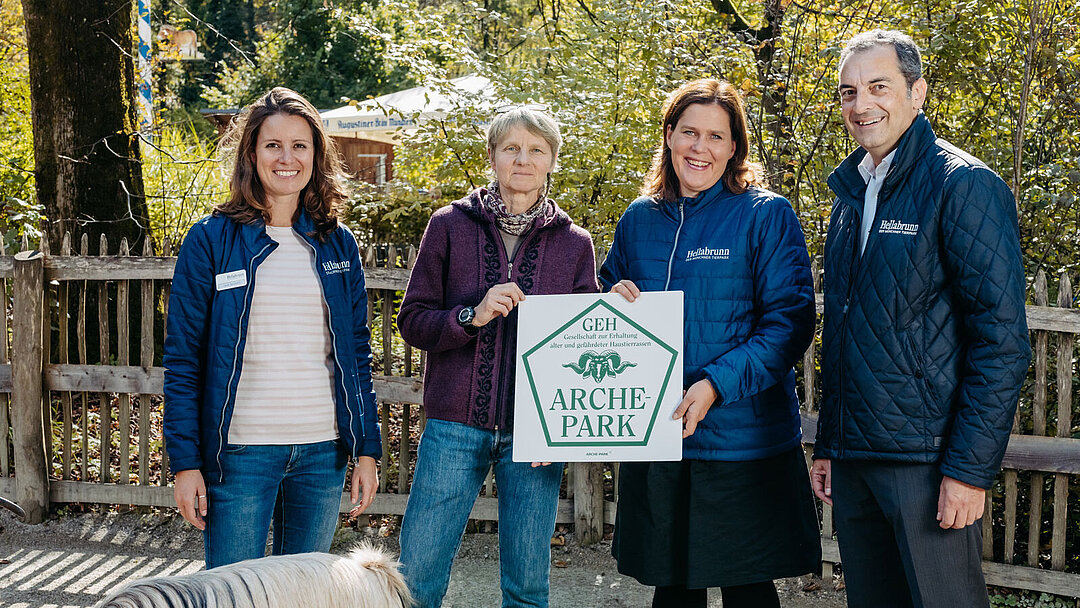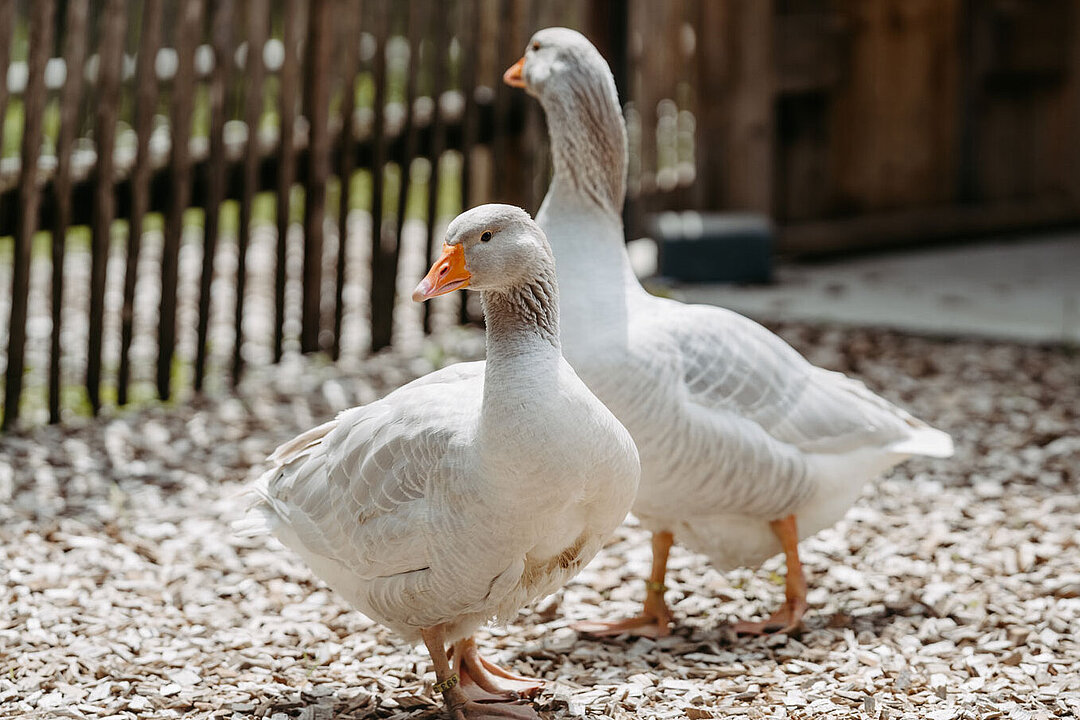
Hellabrunn Zoo awarded Arche-Park membership
Hellabrunn Zoo has been designated an Arche-Park (Ark Park) by the Society for the Conservation of Heritage and Endangered Livestock Breeds (GEH). The award recognises the zoo's commitment to promoting conservation and raising awareness about the importance of protecting rare and endangered domestic livestock breeds.
Anyone who has visited the Mühlendorf village at Hellabrunn Zoo will certainly have met the Murnau-Werdenfels cattle, Appenzeller Spitzhauben, sable rabbits and Bulgarian long-haired goats. All of these species have one thing in common: they are rare, endangered domestic livestock breeds. Over half of the livestock breeds in Germany are classified as endangered – yet are still unknown to many people. The zoo has made it its mission to change this: since the opening of the Mühlendorf in 2019, it has placed a special emphasis on promoting the conservation of these rare livestock breeds and educating the public about their importance.
Zoo director Rasem Baban, who accepted the award on Monday, 7 October 2024, along with Mayor and Chair of the Supervisory Board Verena Dietl and curator Lena Bockreiß, is delighted that the zoo's work is being recognised: "Our designation as an Arche-Park underscores the successful breeding programmes for endangered domestic livestock breeds at the zoo as well as the educational work we do." Verena Dietl added: "Hellabrunn is actively committed to species and local biodiversity conservation and offers visitors an opportunity to get to know heritage breeds and learn about the importance of preserving them."
GEH is a conservation organisation committed to the preservation of heritage and endangered livestock breeds. It also promotes cooperation between farms, zoos, nature conservation organisations and research institutions in order to develop effective breeding and conservation programmes. The Arche-Park membership scheme is part of a comprehensive programme that aims to protect and preserve endangered livestock breeds through targeted breeding and reintroduction projects. Launched in 1995 by GEH, the Arche Project currently includes over 200 Ark facilities nationwide, which provide a concrete framework for the keeping and conservation breeding of endangered livestock breeds.
Antje Feldmann, managing director of GEH: "I am delighted that we are able to award Arche-Park membership to yet another facility, Hellabrunn Zoo, which will help raise awareness of the issue through a major institution to all its visitors. Many people are not aware that the livestock produce we consume today is produced by only a few modern high-performance breeds. At the same time, every two weeks a heritage breed – livestock adapted to the climate and location, a genetic reservoir and a cultural asset – becomes extinct.
Lena Bockreiß, biologist and curator of the Mühlendorf, added: "If heritage livestock breeds die out, their genes will be lost for future breeding. But we need them in order to safeguard the special adaptability traits developed over time, for example, in the event of a pest or epidemic outbreak. These traits may also be vital for adaptation to climate change or changing demand."
The livestock breeds to be preserved under Hellabrunn Zoo’s breeding programmes include Murnau-Werdenfels cattle, Girgentana goats, Bulgarian long-haired goats, sable rabbits, Bavarian landrace geese, Appenzeller Spitzhauben and Augsburger chickens.
For more information about the Mühlendorf village and its residents please check out episode 10 of the zoo‘s Mia san Tier podcast, which is available for download on the Hellabrunn Zoo website.
